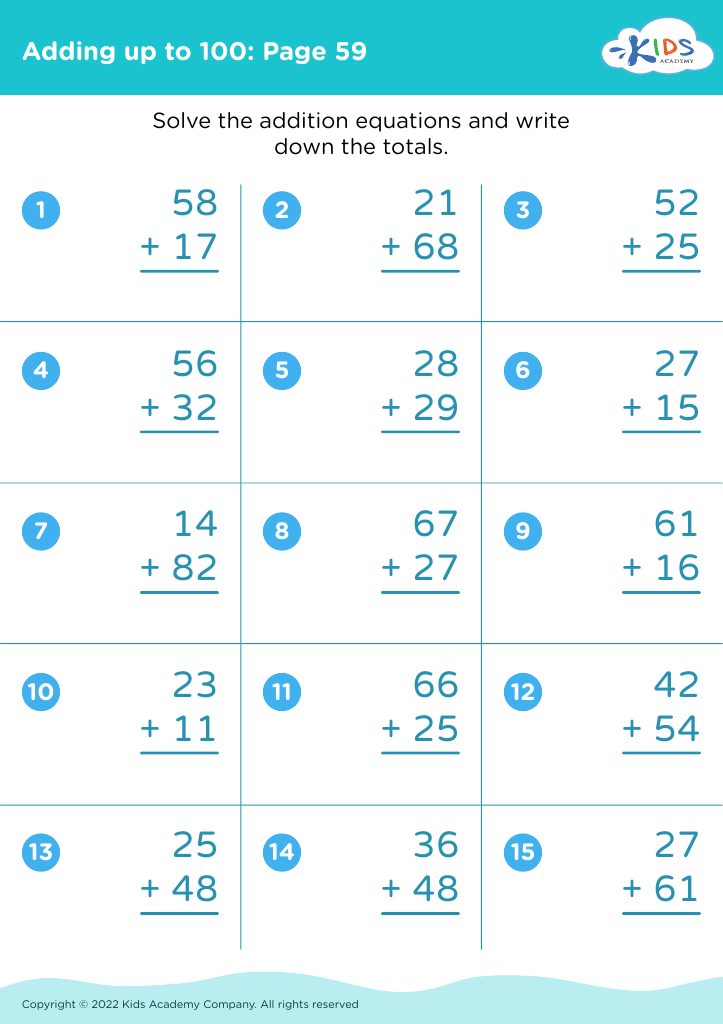Developing sequencing skills Worksheets for Kids
1 filtered results
-
From - To
Question/Answer
How to train the Developing sequencing skill in Grade 2 students learning about Adding up to 100 Misc?
To train Grade 2 students in developing sequencing skills for adding up to 100, start with hands-on activities like number cards or blocks. Arrange activities that require ordering numbers, such as least to greatest. Introduce simple, sequential addition problems and use number lines for visual help.
What does the Developing sequencing skill mean when it comes to Grade 2 Adding up to 100 Misc learning?
Developing sequencing skills in the context of Grade 2 Adding up to 100 Misc learning involves teaching students to understand and follow numerical order up to 100. It helps them comprehend progression and regression in numbers, which is foundational for performing addition operations within that range. This skill supports their ability to systematically approach and solve addition problems efficiently.
How does the mastery of the Developing sequencing skill affect a student's performance at an early age?
Mastery of the developing sequencing skill at an early age significantly enhances a student's performance by improving their ability to organize thoughts and information logically. This foundational skill aids in understanding patterns, making predictions, and solving problems efficiently. It also boosts reading comprehension, mathematical understanding, and the ability to follow instructions, leading to overall academic success.













